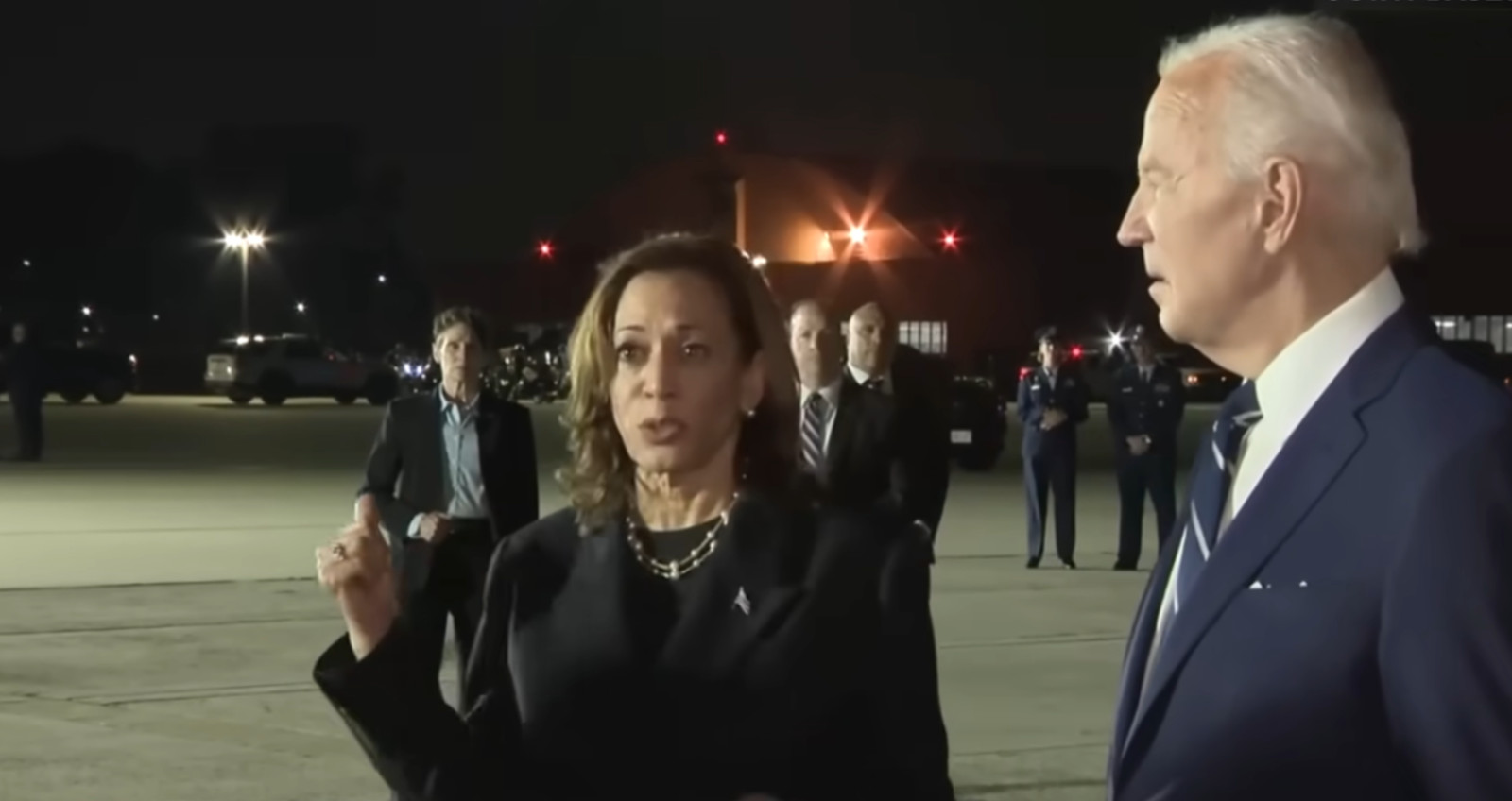Vice President Kamala Harris recently reignited discussions about her potential as a future president after responding to a reporter’s question regarding a landmark prisoner exchange between the United States and Russia. Her remarks came as she stood beside President Joe Biden, who appeared somewhat disengaged during the event.
When asked to comment on the exchange, Harris emphasized the significance of diplomacy in presidential leadership. “This moment underscores the critical importance of having a president who comprehends the power of diplomacy and its profound impact,” she stated. The unscripted nature of her response drew mixed reactions, with some praising her authenticity while others criticized her delivery. The social media account “End Wokeness” was quick to deride her comments, describing them as a “word salad.” Another user noted President Biden’s seemingly frustrated expression, suggesting that he might be displeased with the Democratic Party’s selection of Harris, whom they described as unpopular within the party. The sentiment was echoed by others who felt that Harris’s public speaking lacked coherence and effectiveness, raising questions about her readiness for the presidency.
Harris’s political journey has been marked by notable shifts in her stance on various critical issues, particularly those that were central to her 2020 presidential campaign. These shifts, critics argue, are strategic moves to appeal to a broader voter base as she positions herself as a leading contender for the 2024 Democratic nomination. During her 2020 campaign, Harris championed progressive policies on energy, climate change, gun control, and immigration, aligning herself with the left wing of the Democratic Party. However, as reported by The New York Times, her current campaign is working to present her as a more moderate candidate, even as Republican opponents relentlessly dig up old interviews and video clips to highlight her past positions.
One of the prominent critics of Harris’s political transformation is Republican candidate Dave McCormick, who is running against Democratic Senator Bob Casey of Pennsylvania. McCormick has created a compelling montage that showcases Harris’s controversial stances, including her support for open borders and a mandatory gun buyback program. The advertisement features clips of Harris endorsing the Green New Deal, opposing fracking and offshore drilling, advocating for single-payer health insurance, supporting voting rights for felons, and promoting climate policies aimed at reducing red meat consumption. The ad serves as a stark reminder of Harris’s progressive roots and poses a challenge to her efforts to rebrand as a centrist.
Republican strategists have been quick to capitalize on Harris’s progressive history. Brad Todd, a GOP strategist, noted that Harris was considered one of the most progressive members of the U.S. Senate before joining Biden’s ticket. He remarked on the abundance of footage showcasing Harris’s liberal positions, suggesting that these clips will be a focal point of the campaign against her. Todd stated, “The archive is deep. We will run out of time before we run out of video clips of Kamala Harris saying wacky California liberal things. I’m just not sure that the rest of this campaign includes much besides that.”
The Times provided additional details about McCormick’s montage, emphasizing Harris’s opposition to fracking—a particularly contentious issue. During the 2020 primaries, Harris included a fracking ban as a key element of her energy platform. However, fracking is a significant part of Pennsylvania’s economy, making it a crucial battleground issue in the upcoming election. Harris’s past comments about considering the abolition of the Immigration and Customs Enforcement (ICE) agency, her criticism of increasing police presence, her support for felon voting rights, and her advocacy for a mandatory gun buyback program and the elimination of private health insurance further complicate her efforts to appeal to moderate voters.
Harris’s evolving positions reflect a broader trend within the Democratic Party, where candidates often navigate between progressive ideals and the practicalities of appealing to a diverse electorate. Her ability to balance these competing demands will be crucial as she continues her political ascent. The upcoming election will test whether her strategic repositioning can win over the necessary support or whether her past progressive stances will continue to be a focal point for her critics.
In summary, Vice President Kamala Harris’s recent comments on a high-profile prisoner exchange have reignited debates about her presidential potential. Her political journey, marked by significant shifts in policy stances, illustrates the complexities of appealing to both progressive and moderate voters. As she prepares for the 2024 nomination, the scrutiny over her past positions and her ability to effectively communicate her vision for the future will be pivotal in determining her political fate.
